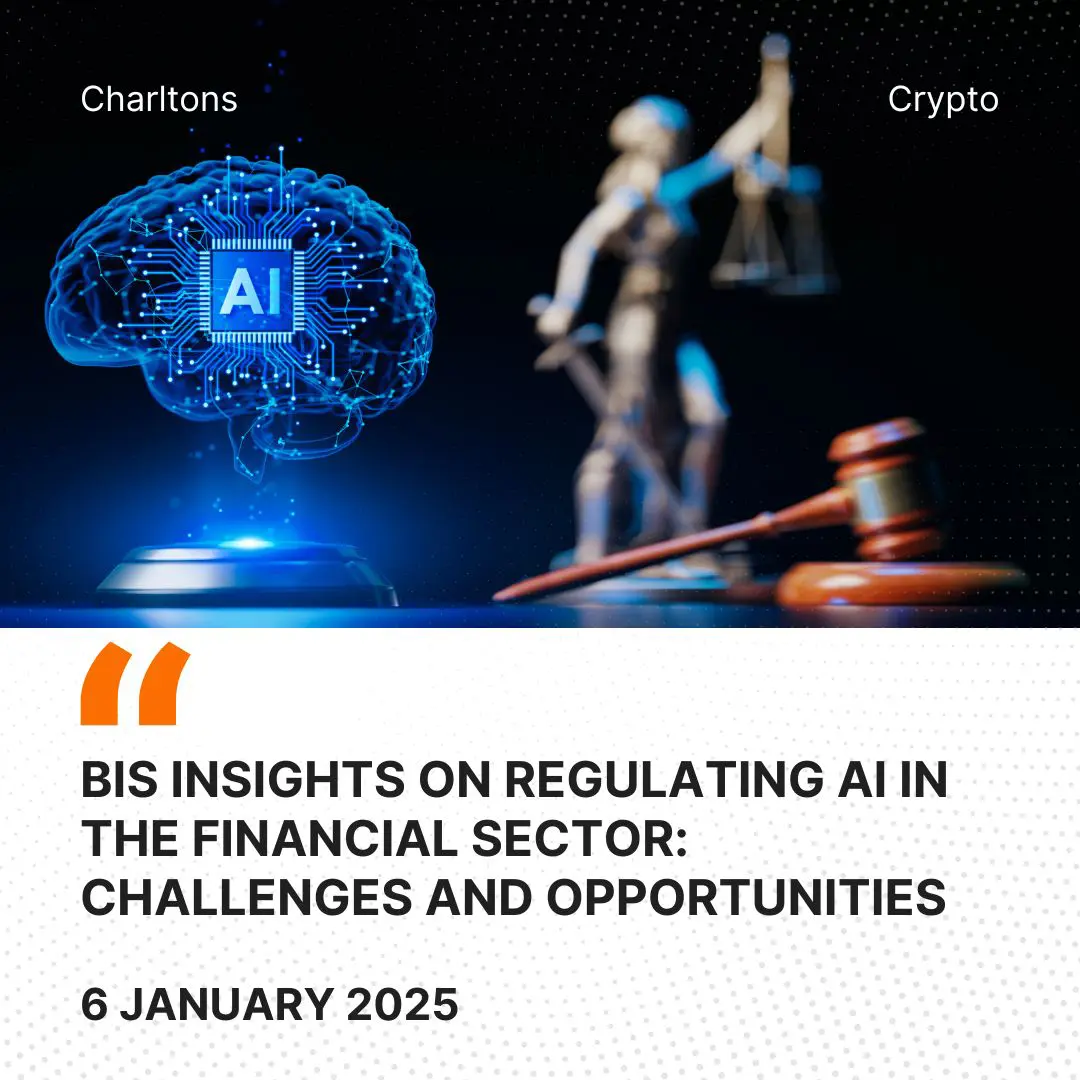
On 12 December 2024, the Bank for International Settlements (BIS) released a FSI Insights on policy implementation No 63 titled “Regulating AI in the Financial Sector: Recent Developments and Main Challenges.” This information paper, authored by the Financial Stability Institute (FSI), provides an in-depth exploration of the increasing use of artificial intelligence (AI) in the financial sector. With AI’s transformative potential to revolutionise banking and insurance practices, the report examines the challenges posed by AI adoption and outlines a regulatory framework to mitigate associated risks while fostering innovation.
The paper draws attention to the rapid expansion of AI technologies, particularly in areas such as customer support, fraud detection, and credit and insurance underwriting. These applications have enhanced operational efficiency, improved customer experience, and optimised decision-making processes. However, the exponential growth of AI adoption, particularly with generative AI models, has brought with it heightened risks. These include ethical concerns, governance challenges, and dependency on third-party service providers. The BIS discussed the need for proportionate and risk-based regulatory responses to address these issues, ensuring a balance between technological progress and financial stability.
The use of AI in financial institutions predates the recent advancements in generative AI, the accessibility of sophisticated models has accelerated its adoption. AI tools are increasingly being employed in tasks ranging from credit scoring to fraud detection. Insurers, for example, have begun leveraging AI to analyse unstructured data for accurate risk assessment and pricing. The report aims to guide policymakers, financial institutions, and supervisory authorities in addressing the gaps in current regulations and ensuring the responsible use of AI technologies.
One of the issues identified in this paper is the amplification of risks traditionally associated with financial systems. For instance, the complexity and opacity of AI models can exacerbate credit and operational risks. The reliance on historical data can perpetuate biases, leading to discriminatory outcomes in credit and insurance underwriting. The BIS also raises concerns about third-party dependencies, with financial institutions increasingly relying on global technology firms for AI infrastructure. As financial institutions increasingly outsource AI services to big tech companies, there is a growing risk of systemic vulnerabilities stemming from a lack of direct regulatory oversight of these providers. A framework that extends regulatory perimeters to include technology suppliers is necessary to address this growing dependency and to ensure that these entities are held accountable for compliance with financial sector regulations. This concentration of service providers poses systemic risks, particularly in cases of operational failure or cyberattacks.
To address these challenges, the report proposes strengthening governance frameworks. Financial institutions must establish clear accountability structures, ensuring senior management oversight and human intervention in critical decision-making processes. The concept of “human-in-control” is emphasised, highlighting the importance of mitigating harmful outcomes from autonomous AI systems.
The report also discusses the importance of harmonising AI regulations across jurisdictions. A lack of a globally accepted definition of AI complicates regulatory efforts, particularly for financial institutions operating internationally. The BIS advocates for international collaboration to create a standardised framework for AI use in finance, ensuring consistency and reducing compliance burdens. Consumer protection is another area addressed in the report, with recommendations to safeguard against discriminatory practices and ensure fairness in AI-driven decision-making.
The exponential increase in computational power needed for training and deploying AI models is a major driver of energy consumption. With the financial sector’s adoption of AI set to expand, concerns about its contribution to carbon emissions and energy inefficiency are becoming increasingly relevant. Current regulatory frameworks scarcely address the sustainability challenges posed by AI, leaving a critical gap in aligning technological progress with global environmental goals.
(Source: https://www.bis.org/fsi/publ/insights63.pdf, https://www.bis.org/fsi/publ/insights63.htm)





